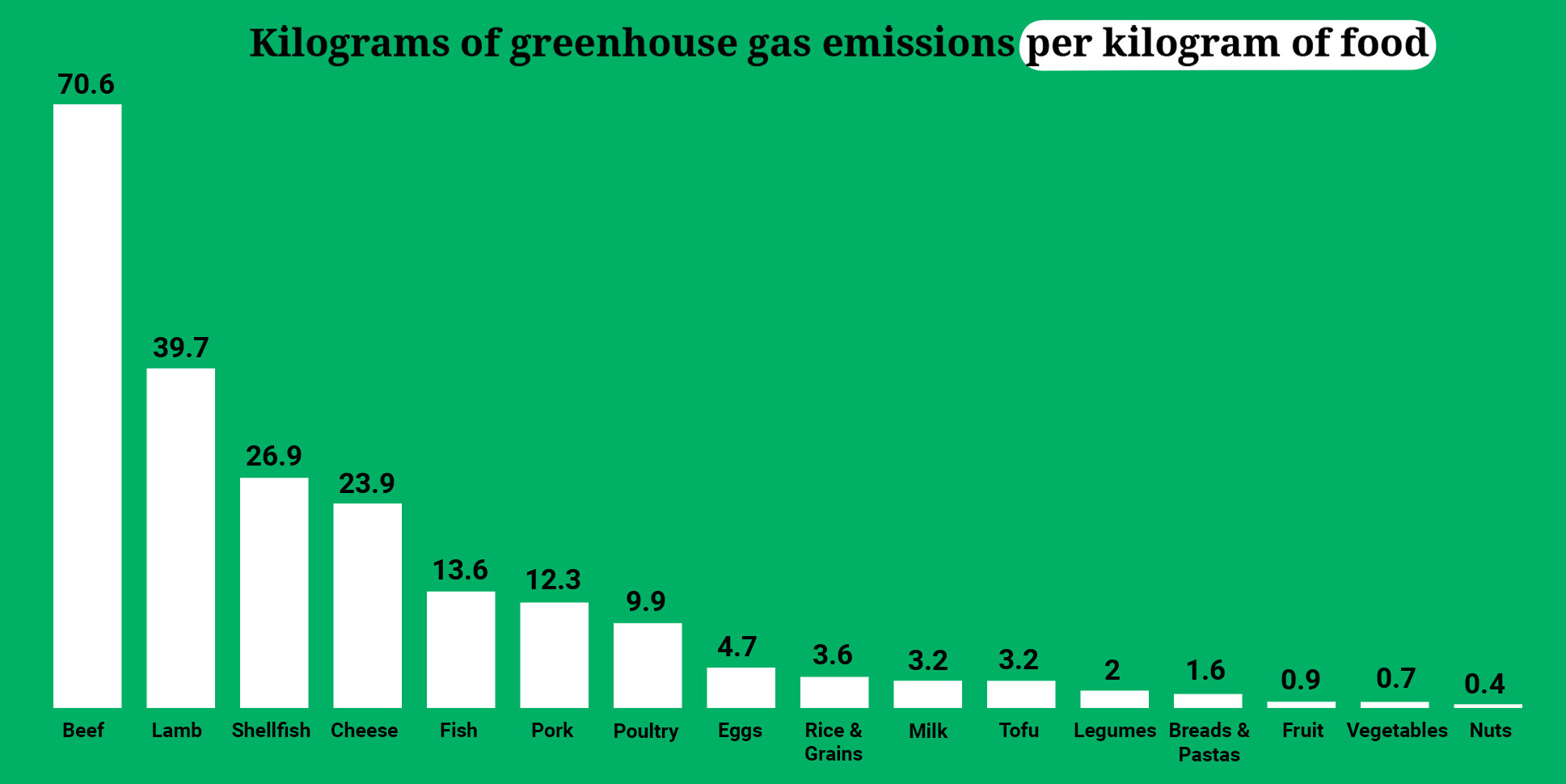Diet and Climate Change
페이지 정보

본문
Good day everyone! I hope that everyone has been enjoying the pleasant weather nowadays. For today's story, I would like to share with you my ruminations and insights about a daily activity that we all participate in - eating. I have never thought of it before, but actually, what we eat has significant impacts on the environment and climate change. Everything that humans consume are produced within the earth and are inextricably linked to wider environmental processes. According to the World Bank (2022), the global food system contributes about a third of greenhouse gas emissions, and is the number one source of methane which is a major contributor to global warming. It is quite alarming to realize that our daily consumption of food leads to pollution which alters our planet detrimentally. Additionally, global warming has negative implications on millions of people. Global warming and the general change of climatic conditions lead to global food insecurity which impacts vulnerable populations, especially those who are residing in developing countries. Millions of people rely on agriculture not only for food but as their primary source of income. However, climate change can alter productivity in a variety of ways. For instance, climate change leads to extreme climate conditions leading to previously unseen weather events such as super typhoons and extended periods of drought. Moreover, increasing temperatures impact crop production especially for crops that are sensitive to changes in temperature. The increased temperature also leads to water scarcity and can accelerate evapotranspiration or the transfer of water from the land to the atmosphere.
I have never considered climate change whenever I made my choice of which food items to consume, and I now realize that it is necessary for us to increase awareness of the implications of our personal consumption choices on climate change. Since I moved to South Korea, I have been fond of eating meat, especially beef and occasionally, lamb. I also noticed that I have been consuming more vegetables here than when I was in the Philippines, mostly because of the side dishes that are offered in restaurants and even in convenience stores. Eating healthy is necessary to maintain a balanced life and I always ensured to get the nutrients that I need from a variety of sources. It was quite shocking for me to discover that the dishes that I love most like grilled beef and lamb are actually two of the leading sources of greenhouse gas emissions (See Figure 1). I am now making a personal commitment to shift my dietary habits to one that is more plant-rich and to find alternative sources of protein aside from beef and lamb. This realization reiterates that our personal choices have broader societal implications. We only have one Earth and it is within our responsibility as permanent residents of this planet to ensure that we aim to find solutions and not contribute to the issue of global warming.
Figure 1. Greenhouse gas emissions from food (United Nations, n.d.)

References:
United Nations (n.d.). Food and climate change: Healthy diets for a healthier planet. United Nations. https://www.un.org/en/climatechange/science/climate-issues/food
World Bank (2022). What you need to know about food security and climate change. World Bank. https://www.worldbank.org/en/news/feature/2022/10/17/what-you-need-to-know-about-food-security-and-climate-change
- PrevSustainable Fashion 23.04.25
- NextA Cheaper and Easier Way to Get Cleaner and Whiter Dry Clothes 23.04.23
댓글목록
There are no registered comments.

